Episode 3
Choosing Joy, Finding Gratitude
S03 - Episode 3
May 03, 2025
31 mins & 40 secs
Speakers
Chris McLaughlin
Soren Peterson
About
In this honest and hope-filled conversation, Chris and Soren unpack how reframing our thoughts can change the way we experience the world—from the inside out. They share personal reflections on navigating trauma, working through negative experiences, and the ongoing (and often imperfect) process of choosing joy and practicing gratitude, even when life feels heavy.
This episode is for anyone who’s ever felt stuck in their emotions or wondered how to find meaning in the mess. Chris and Soren explore how mindset isn’t about ignoring pain—but about expanding what’s possible on the other side of it.
💬 “When we change how we think, we open the door to how we feel.” ✨ A grounded, thoughtful take on mental health, healing, and the courage it takes to keep growing.
About the Podcast: Inspired Insights is a real-talk, intergenerational podcast where hosts Chris and Soren explore the big questions around growth, connection, mental health, and what it means to show up authentically in a changing world. With curiosity and compassion, they invite listeners into meaningful conversations that spark insight, challenge assumptions, and inspire action.
New episodes drop regularly—tune in for thoughtful takes, practical tools, and powerful stories that bridge generations and fuel personal growth.
🔗 Listen now on Spotify, Apple Podcasts, or wherever you stream.
https://www.youtube.com/@InspiredInsightsPodcast
inspiredinsights@inspiredcg.com
*Please note that this episode contains sensitive behavioral health topics such as suicide and substance use. If you are experiencing a behavioral health crisis, please contact the 988 Suicide & Crisis Lifeline by calling 988 or visiting www.988lifeline.org.
**This podcast is for information and entertainment purposes only and should not be considered health advice. This podcast is not intended to replace professional medical advice.
Transcript
The Inspired Insights podcast is for informational and entertainment purposes only and should not be considered health advice. This podcast is not intended to replace professional medical advice.
Please note that this podcast may contain discussions on sensitive topics such as mental illness, suicide, and substance use. If you are experiencing a behavior health crisis or need support, please contact the 988 Suicide and Crisis Lifeline by calling 988 or visiting www.988lifeline.org
Chris:
Sorin, welcome back.
Soren:
Yes, welcome back.
Chris:
I have to just draw attention to something first. Mm-hmm. This is Absolute brilliance.
It’s absolute brilliance.
Soren:
I’m so excited about it. I was really afraid that it was gonna look like shit, but
Chris:
Gorgeous and as I said to you probably in an offensive way it is better than I imagined it would be like when I hear Craft project I instantly because I’m not a craft project kind of guy This is gorgeous.
And you did this absolutely yourself
Soren:
And for audio listeners this Oh, right. It is a flower wall that we’ve set up behind us in the studio Of course, it’s not real flowers, but we’ll very beautiful nonetheless
Chris:
And we’ll take some pictures and we’ll put them up on social So our audio listeners can view what we’re talking about.
It’s beautiful. It changes the whole vibe. I love it Mm-hmm. I love that.
Soren:
I’m really glad that it came out like it did
Chris:
Me too. Me, too all right inspired insight of the week for me, so I Have used Shades of this inspired insight from time to time.
Mm-hmm, but it is absolutely remaining true for me and it’s a theme that you and I have talked about way back even the beginning of season one and The theme of this inspired insight is joy and the importance and the essential role that joy plays in our Health and our healing and our wellness and I had the opportunity to present a training this past week for a for a local agency here on just the importance of Joy and how joy is connected to hope and resilience and healing and last week I was in the beautiful state of Ohio presenting the LGBTQ plus version of this presentation on queer joy and the role that social workers pediatric social workers have to play in supporting queer youth and families in Centering joy in their lives and just that’s such a critical component of our work as providers So joy finding joy this wall Brings me joy. I love real real.
I love it Your inspired insights.
Soren:
Yes, so on a similar kind of topic my inspired insight is more about how to go about achieving that joy and I think oftentimes we hear a lot about this idea of gratitude and perspective, but I think People don’t understand fully the importance of that and what gratitude as like a tool is really doing and for me gratitude is really about reframing situations and Placing a stronger emphasis on the positive, right? Like I think especially When we are in a down mood, we have a tendency to frame things negatively all the time And I see this in my friends and I see this in myself sometimes we can focus exclusively on the negatives of given situations, right and ultimately, I think our Perspective on the world is guided mainly by our own internal thoughts, which we have control of right?
so, um, my main idea is framing How can we as individuals take situations and Look at them in our minds in such a way that we are examining them rationally while taking Pleasurable emotions out of them and not necessarily avoiding the negatives of situations But rather seeing the negatives as a means through which to mitigate future negatives, right? Yeah, like and I think about the importance of that with trauma a lot too, right? like, um, I think a big step for me has been reframing my trauma as a useless and awful thing that happened to me into a massive opportunity for change and growth Yeah,
Chris:
Yeah, I want to I want to sit right here and unpack this a bit more For for you and I and for our listeners because I I think this ties so Interestingly to this concept of joy and hope and resilience, right?
And I sometimes wonder like chicken and egg Do our does our attitude our mindset our thoughts? shape our reality Does our reality Shape our mindset and thoughts and like I love your point about we have control over the inner narrative, right? We have control over how we label something how we frame something What but what are your thoughts on that chicken egg
Soren:
Well, I’m gonna start first with kind of how I view reality, right like I think reality is primarily a Reflection of our internal state right because all of our experiences are dictated by our Perceptions and we ultimately have no means of gathering data about the external world past our Internal sensations right like we we as entities are broadly incapable of determining objective reality without relying upon our senses and our senses are Very much at the whim of our emotional and mental state Right. So starting off with that premise of this idea that we quite literally define the world around us through our own perspective And then I think about this idea of our relationship the relationship between our emotions thoughts and behaviors Right, like I often talk with my mother and this is kind of her nugget of wisdom But it’s very much like a triangular exchange Emotions thoughts and behaviors, right? I think as humans we can’t really control our emotions they kind of Operate externally, but our thoughts can control our emotions and our behaviors can control our emotions Mm-hmm, and our thoughts can control our behaviors and we can control our thoughts.
Chris:
That’s right. Yeah, that’s right. Well, you’re and Your mom and I share being clinical social workers in common And that triangle is the whole premise of cognitive behavioral therapy Right CBT that my cognitions my behaviors and my thinking are all connected there and I love that triangle is so clear like that visual is so clear to me and so when I approach a situation a problem a conflict and I have this ability to Conceptualize the problem in a way that feels doable. I can I’m confident that I can be successful You don’t typically give it another second thought right because you just approach it with and if we’re up where if we’re Confronted with a problem that maybe we have some lived experience navigating and we’ve been successful in the past Again we don’t give it that second thought.
We just approach it from the same lived experience of success Conversely when I am confronted with something I’ve never dealt with before Or I’m supporting somebody with something that we’ve never dealt with before I’ve got a source information from somewhere Yeah, and if I don’t feel confident about it, and I don’t feel good about it it’s gonna lead me to Maybe not do my best or maybe feel like my best isn’t good enough. Yeah, so that triangle is so important in Navigating to your point navigating the world and and figuring out what we have control over.
Soren:
Exactly. I think like ultimately my big emphasis that I place when I’m talking with my friends when I’m talking with my family is That we kind of have control over everything right like everything is defined by us as Individuals and when we can understand ourselves as individuals and when we can process things rationally To better to benefit ourselves and others then we have control over the entire universe the world is our oyster right in unlocking the ability to control our thoughts and through those thoughts sort of guide our Emotions and nurture ourselves and make sure that we are behaving in the proper way. We can control Almost anything.
Chris:
What have you found has been helpful for you? Like as you were saying our emotions come up like we don’t have control when that feeling comes up whether it’s jealousy or shame or Joy happiness anger. We don’t like that feeling is there What have you found helpful in being able to press pause and?
Lean in to naming that feeling Recognizing I don’t have control over the feeling But I have the ability to explore get introspective and make sure that that feeling isn’t Hijacking the thought or the behavior
Soren:
Yeah, I I think It’s really easy For us and when I was in crisis I was constantly allowing my feelings to directly control every thought and action that I was taking and it’s really Easy for that to be the case because our emotions are urgent needs They are not something that is existing as a tool for us necessarily, even though I do think our emotions can serve us really well Um, they exist as sort of like a wild internal natural force I see them as a little bit more like primordial. Right?
Yeah, um and Humans are fantastic at shaping the elements to do what we want Right, and I think we can do the exact same thing with our emotions For me, I think a big step in recovery and everyday life is The immediate response to Stimuli being thought right and obviously I’m sure our audience knows I’m a bit more cerebral than your average person No,
I know But every single time I Experiencing some experience something that might result in a negative emotion. My immediate reaction is to first think about it Yeah, and um, I think then it allows me to Like break I used to have these thought loops that were fed by my emotions I would have an emotional stimuli like a trauma reaction or something and then my thoughts would feed into those emotions and the emotions would grow more intense and then it would make more negative thoughts and it would become a Spiraling feedback.
Yeah, and I think a lot of people Have the tendency to do that, right? And the biggest first step is Control your thoughts because your thoughts are concrete Your thoughts your thoughts are identifiable and your thoughts are easily expressed Yeah, right in this in the way that emotions are very difficult to express and once you can sort of conceptualize situations off the bat Then you can start Behaving in ways that nurture yourself.
Chris:
Yeah Yeah that gift of introspection I think is one of the greatest gifts we can give ourself and To support somebody else be that sounding board to help other people learn to get introspective is the best gift we can give somebody else the the ability to sit with your thoughts and Name the emotion Look at the trigger what’s going on in the environment? Know what our baseline is like, oh this somebody gets in front of me or takes my parking space in the parking lot I typically that rolls off my shoulder today. I’m furious and I cannot let it go.
Well, why is that? What’s going on with that and the ability just to sit with that is a really important Step in self-awareness.
Soren:
I Totally agree and you mentioned this idea of like a sounding board And I think in situations where we might start to act and I have made a very conscious effort With this using my mom as a resource When our emotions are controlling our thoughts we need our immediate response to be Oh, I need someone to think for me right now. So then I can get into a more rational space, right? Yeah, um, and I was wondering if you could speak more to how you’ve developed relationships So that like your husband or your friends can be That person to think for you and with you over your own internal experience.
Chris:
Yeah, that’s a great question I I think with over time as relationships grow and evolve And I’ve seen that with you and I over the last year and a half of spending this time together It ingest our small talk. I know more about what’s going on in your life And so when something seems off Because I have a deeper knowledge of what’s been going on in your life. I Can help you press pause and go you know what by chance is what’s going on over here Creeping into what’s happening?
and so that having the luxury of a connection with somebody to be able to source backwards and I do this with strangers in my clinical worlds all the time and Helping folks to develop the skills to press pause Get regrounded because you were saying That emotion. I love that description. You have this really primordial ooze like those are our emotions.
Yeah, and They can get the best of us and so Okay, stop. Let’s get grounded Let’s get feet on the floor and there’s all kinds of strategies for those for just getting mindful getting grounded but to interrupt the thought from completely hijacking the Interrupting the emotion from completely hijacking the frontal lobe right which we know trauma yeah has the ability to do and so for me, it’s It’s helping with the interruption stop like Enough slow it down Let’s just sit for a second with this Okay now talk through it what’s going on? Name it shape it and start Not pushing the emotion down but finding a balance where the emotion isn’t oozing everywhere yeah, but we’ve put some guardrails around it to at least contain it and the the Image that keeps popping in my head is Rather than this volcano or this slimy ooze coming everywhere these strategies to interrupt and press pause really is about building some Building a structure around it so we can then study it Yeah, and really take a look at 100% and not let it continue to flow and get away from us But put it in the aquarium tank Let it do its thing in there while we’re going. Huh? That’s interesting What’s what’s that about and then that introspection right like we live?
we talk about this all the time in my business and personal relationships grind culture is unlike anything I’ve seen even during kovat like the grind culture going on now. I Think is the catch-up result of a little bit of the Covid stuff we are go go go you’re on the go all the time like go go go and we have lost the ability of Just sitting with ourself for a couple minutes of silence and just be one with yourself in your head.
Soren:
I think actually I was talking to My former AP chemistry teacher who used to be a professor and one of his major qualms with Academia was literally that there’s no longer opportunity to just think and digest material anymore And that doesn’t necessarily pertain to emotions, but it’s a very similar situation, right?
Chris:
I think but it’s introspection.
Soren:
Yeah, it’s introspection Yeah, it’s and also like in science you’re trying to investigate a natural phenomena and I bring it back to this idea of framing like when I’m Experiencing a really strong emotion.
My first thought is oh, this is really interesting. Let’s investigate Yeah, it’s an opportunity to kind of put on my Sherlock Holmes had and yeah about the pipe tobacco, right?
Chris:
Well, and you’re a naturally curious person. And so you apply that curiosity To everything that you do whether it’s the book you’re reading the Subject you’re studying the documentary that whatever it is and yourself. Yeah, and I wonder like you were mentioning about healing and the and how this process of introspection really assisted you in your healing process The curiosity that you approached What was going on for you and what was going on around you What was going on for your family?
Like we I think about our conversation with our siblings our brothers Yeah last season and you and your brother got into this about Your brother saying but I I didn’t know what was happening I knew it was something scary, but nobody was talking to me about it No, and so I think one of the pieces of your resiliency is your curiosity and That curiosity allows you to reframe and get really cerebral. Yeah about reframing it Okay, here’s what’s going on. I can continue to do more of what’s not working for me Yeah, or I can make some changes
Soren:
I agree, and I think the curiosity is kind of part of learning to love ourselves, right?
like even in our worst moments, we are Interesting like humans are psychologically fascinating things and I think the most fascinating interaction that you can have with a human is In using yourself as a case study. Yeah, right like sort of stepping back and trying to dissect your emotions like you’re a Surgeon and your emotions are on an operating table. Yeah.
Yeah, which is very like cold image but I feel like it’s kind of what we need to do sometimes and this doesn’t mean we’re separating ourselves from our emotions and Like no longer feeling them. It means that we’re processing them in a more systematic fashion Yeah, rather than suppressing them and I think emotions naturally want to hide right like think about The little boy who has a crush and then tries to hide it and Instead of bullies the girl or something of that Nick
Chris:
or the other boy.
Soren:
Yeah, or the other boy real.
Um and Like our natural tendency to not want to cry around others like our strong emotions don’t want to be revealed So you have to get curious to want to like sneak around that corner and take a peek at them.
Chris:
Yeah Yeah, and that’s really Three seasons ago That’s what brought you and I a part of what brought you and I together about this podcast is reducing stigma Reducing the barriers because oftentimes the barrier is us. Yeah, we’re the reason that we don’t Want to allow other people to see that piece of us. Maybe we’re ashamed of it.
Maybe we’re scared of it Maybe we’re afraid of the the narrative that that thing will try to tell about us But I think that brings us to that framing Insight that you had earlier. Is that from where I sit the more we’ve Put on the magnifying glass and the more we put it on the table and looked at it and identified it and named it and understand it the more Easy, it is to then reframe around it 100% and change the narrative
Soren:
Yeah, our Emotions are part of our internal environment.
They are us right and They have the opportunity to serve us Emotions evolved because they are a viable tool for humans to facilitate social interactions And they can do that really well and they can help us connect with others, but we have to let them out With a leash on them. Yeah in order for them to make friends.
Chris:
Yeah, right Yeah, I I just gotta say this is probably our record for the number of Metaphors we’ve used for emotions. We’ve got volcanoes and ooze and pets and cages and surgeon tables Yeah, but it’s that’s it like that’s the those are literally the pictures. I think about when I think about our Emotions getting the best of us.
Yeah become and I think every human everyone listening to us Has experienced at least one time in their life when they were overwhelmed by an emotion and maybe it was anger Maybe it was jealousy. Maybe it was sadness. We’ve all Experienced what it’s like to have that emotion show up and then just take over Yeah, and and and I think that’s a beautiful part of life as well And that’s part of what makes humans so complex and so interesting and so curious and so beautiful Is that even at our worst?
There’s still something to be learned we still have something to offer
Soren:
Yeah, I agree and again brings it back to that framing right there is always Something positive to be looked at in any situation, right? like I look back on getting assaulted and the worst years of my life and I’m grateful right and I keep going over this idea of gratitude about it because if I Hadn’t have gone through that. I would not be where I am right now.
I wouldn’t be talking to you I wouldn’t have the awesome friends that I have. I wouldn’t be able to use my story to help. Yeah, so like We have to view negative things for their Bad parts so that we can mitigate those but once we’ve stepped back from it.
It is not a stain on our record Yeah, never a stain on our right.
Chris:
Well and you’re our listeners know that I often quote my girl Taylor and That song Thank You Amy where she says and I’ve said this on our podcast before But when I count the scars, there’s a moment of truth if there hadn’t been that then there wouldn’t Be oh, I messed it up when I cut the stars a moment of truth If there hadn’t been this then there wouldn’t be you or something like that, you know, like she sorry Taylor But really recognizing that we grow with through These things that happen to us the things that we go through we can grow through and Whether it’s literal scars or whether those scars are more on the inside to reframe that as you have done so beautifully as those scars are Reminiscent of something I grew through yeah a hundred and I wouldn’t be sitting here if it hadn’t happened I
Soren:
100% agree and I often think of this idea like I used to think that I was Enduring my emotions and I was enduring my thoughts and I have a friend who often says I’ll thug it out when they’re experiencing an emotional crisis and We don’t have to endure our emotions We should be reveling in the curiosity and beauty that is ourselves even our worst moments It is an opportunity for discovery, right like I’ve had a probably the I Can’t say worst because I think it’s a really good week overall and we’ll have really good results But I’ve had the most emotional week. Mm-hmm. I’ve had in probably Since freshman year.
Chris:
Yeah years.
Soren:
Um years since I was actively in crisis this week because I have a lot going on with my friend group and I have friends experiencing behavioral health crises, but um, and I just every night when I’m driving home, I Think of how grateful I am for this opportunity to examine human emotions Yeah opportunity to grow closer with my friends through this hardship
Chris:
And what you can offer your friends Because of your past experiences, right and yeah you you give the gift of your insight Your inspired insight to those friends who are In need of it and who are actively seeking you out because of your openness to talk about your past and I think so and that is One of the pieces about you I Love so much about who you are and who you’ve become is your Not just ability to share because that it is ability.
It’s tough to share and be out there and be bold and be and be upfront and authentic but your Willingness and your courage to share that part of you that at the time almost destroyed you came pretty close to destroying you and now is Probably of all the superhero capes that you wear That’s probably one of the ones that I see shining through the most because it truly is a part of your story It truly does Contribute to who you are, but it does not shape you. It does not define you.
Soren:
Yeah That’s very high praise. I appreciate that
Chris:
mean every word. Yeah
Soren:
Yeah, I think as this episode sort of winds down, I really want to leave our audience and viewers with this idea of control. I know that the world really can feel out of control and like you can’t dictate anything of what’s going on around you. And the reality is sometimes you can’t change what’s going on around you.
But ultimately, the emotions you experience about what’s going on around you are what you can control. And they are what you should be focusing on. Right?
If we can’t control a situation, we can control our reaction to it and how we deal with it. And that’s where we should be deriving value.
Chris:
Yeah, right. Yeah. And then we pay it forward.
When we’re able person, we can pay it forward. And the gift of insight and the gift of reflection and the gift of perspective sometimes is exactly what the other person needs. Precisely.
Yeah. Ooh, deep thoughts. The 04401.
Well, Sorin, thank you again. I know I say this all the time, but thank you for being who you are and doing what you do and sharing these pieces of you with me and with us and with your friends.
Soren:
Yes. And I’d like to thank you too, for being wise and knowing what’s going on and always having a Taylor Swift quote that pertains to what we’re talking about.
Chris:
Always Even though I may lose it in the moment, it’s there and I’ll always post about it.
Soren:
I think maybe I’ll start listening to Taylor Swift because I think it’s kind of crazy. Every single time we talk about something deep and I’m like, wow, this is really intense philosophy. You’re like, you know, Taylor mentioned this in a song once.
Chris:
Yeah, that’s right.
And I still remember back, I owe you a playlist and you owe me a playlist. We’ve got to do that. We’ve got to make it an effort to create the playlist.
And thank you, Amy, we’ll be on that playlist. Until next time, our friends, this has been Inspired Insights.
Chris:
I’m Chris McLaughlin.
Soren:
I’m Sorin Peterson. Have a great week.
Chris:
See you next time.
Soren:
Thank you so much.
The Inspired Insights Podcast has been brought to you by Inspired Consulting Group, LLC.
Edited and produced by Amanda Seidel and Derek Harter. Marketing support for the Inspired Insights Podcast by Elizabeth Keenan. Music by Derek Harter.
Please visit www.inspiredcg.com to learn more. Copyright 2025. All rights reserved.
Show More
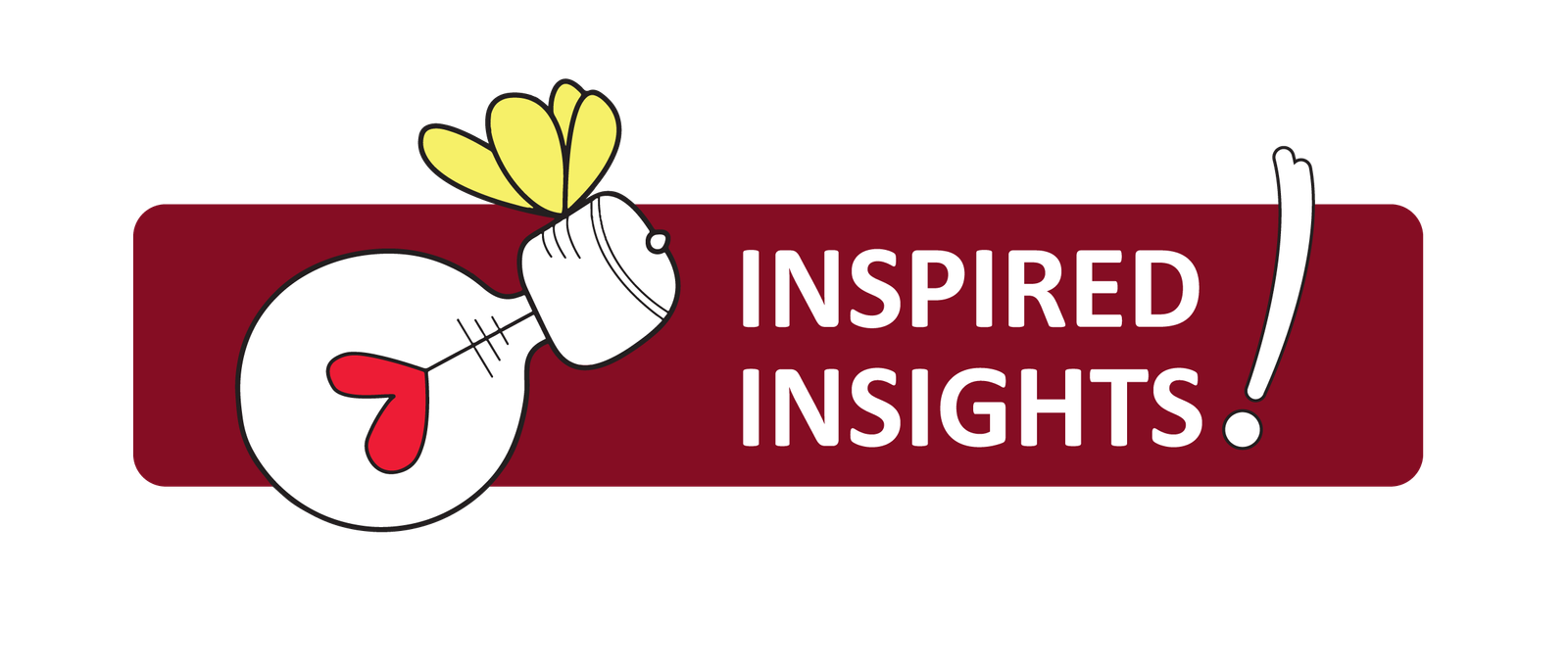
All Episodes

S3E1: Welcome Back
Welcome back to the Inspired Insights Podcast for the very first episode of Season Three! Join hosts Chris and Soren as they dive into a heartfelt conversation about the evolving world around us–and within us.
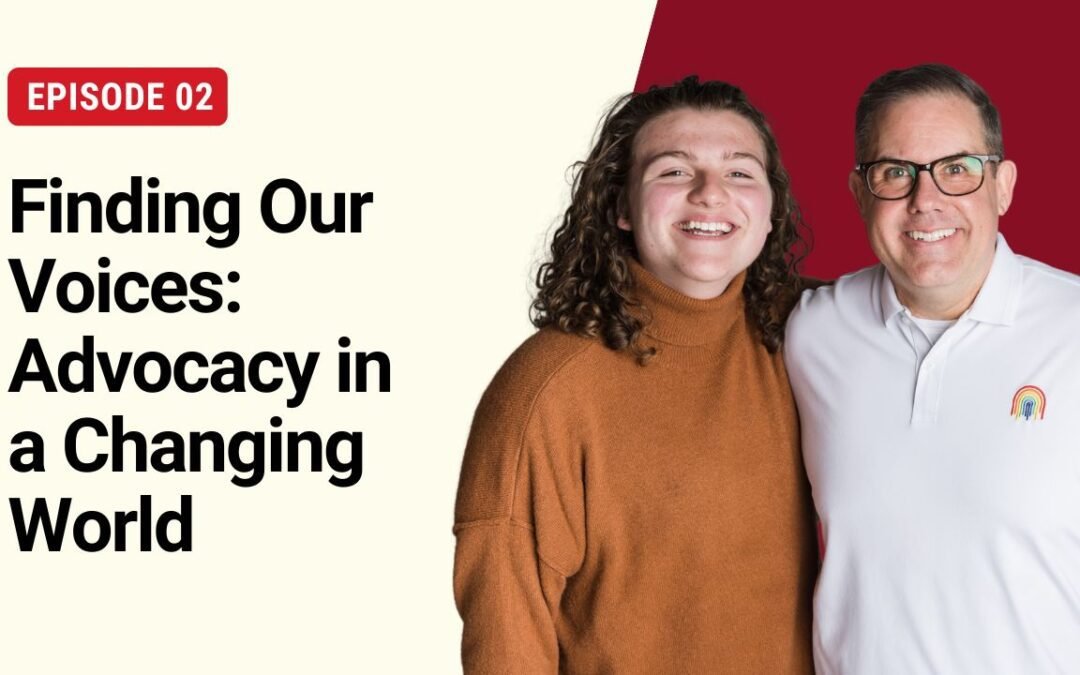
S3E2: Finding Our Voices: Advocacy in a Changing World
Chris and Soren sit down with seasoned lobbyist and tireless human rights advocate, Charlotte Warren, to explore the power—and the personal cost—of advocacy in today’s shifting political landscape.

S3E4: The Power of Storytelling
Chris and Soren sit down with Authenticity Coach and Author Suzanne Carver to explore how sharing your story—and embracing who you truly are—can open doors to healing and transformation.
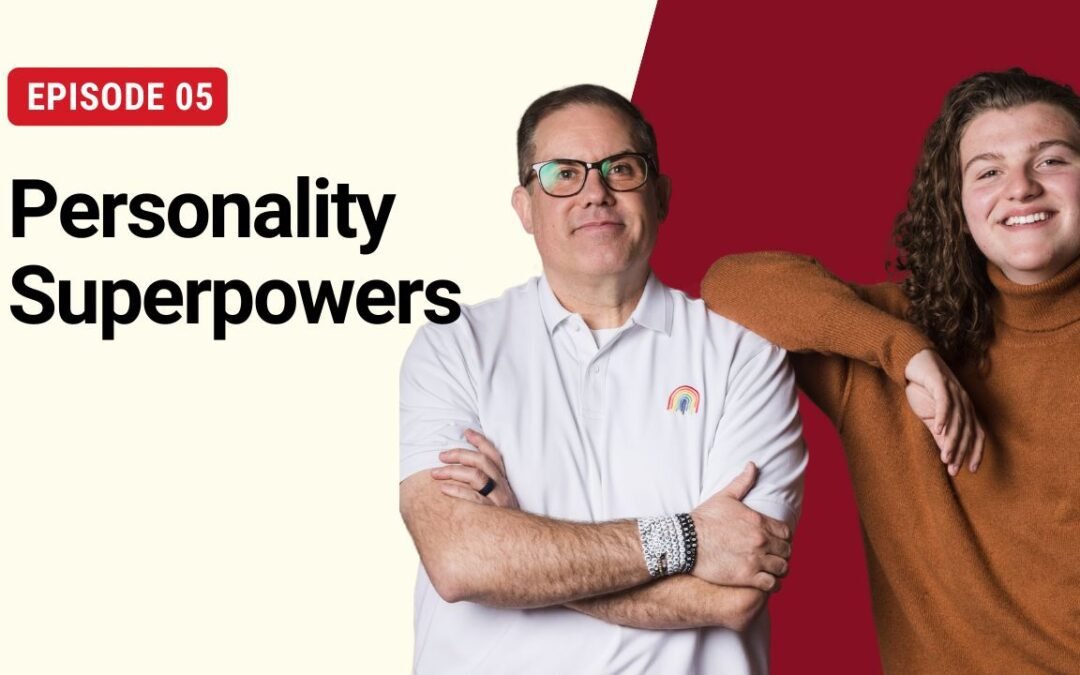
S3E5: Personality Superpowers
In this episode, Soren and Chris explore their Myers-Briggs personality types and how trauma and lived experience have influenced how they show up in the world.

S3E6: The Power of Pride
Together, they explore the deeper meaning behind Pride celebrations—why they matter, how they foster connection and visibility, and what it really takes to bring a community-wide event like this to life.
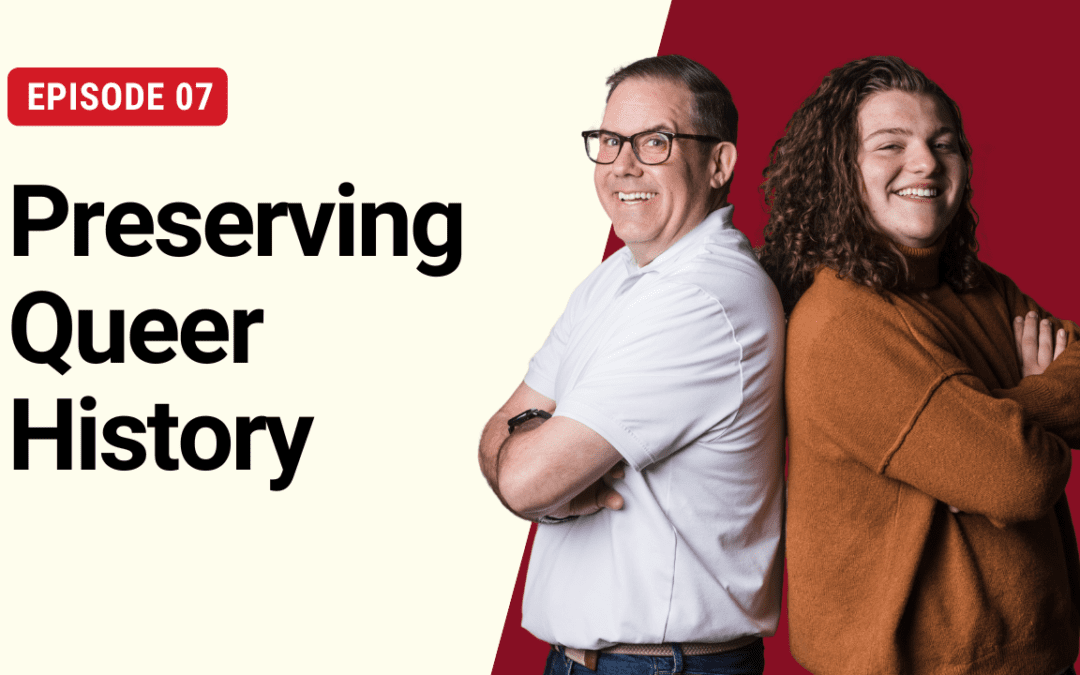
S3E7: Preserving Queer History
Soren and Chris sit down with special guests Sam and Emma to explore the vital importance of preserving queer history through storytelling and community memory.
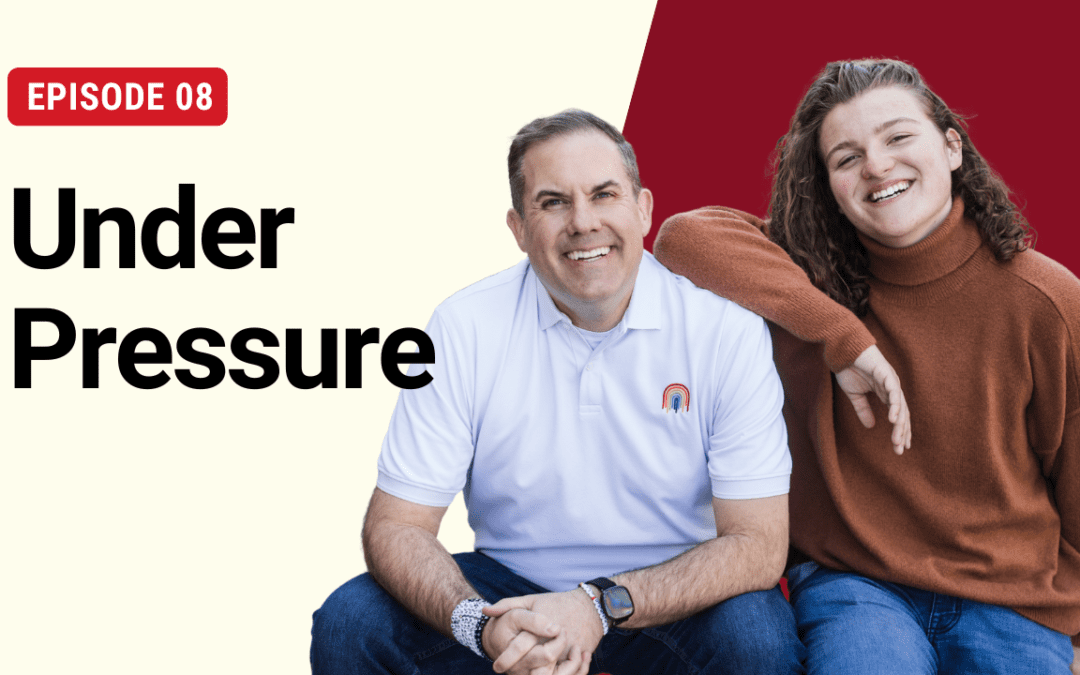
S3E8: Under Pressure
What happens when we let teens speak for themselves? In this candid and eye-opening episode, Soren and Chris hand the mic to two remarkable young adults—Sophie and Bennet

S3E9: College Bound: Transitions to Your Next Era
Soren and Chris sit down with two student life experts, Angela and Andi, to explore the powerful transition from high school to college—and how it reshapes community, mental health, identity, and daily life.
